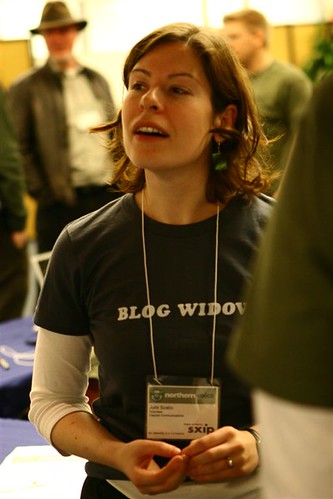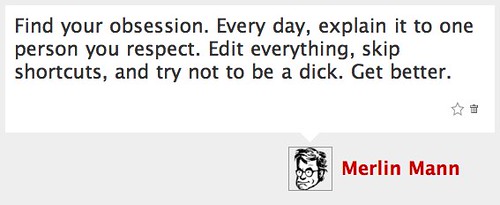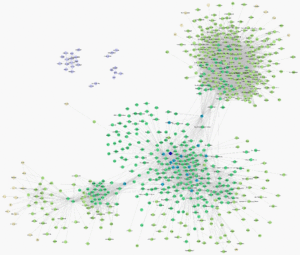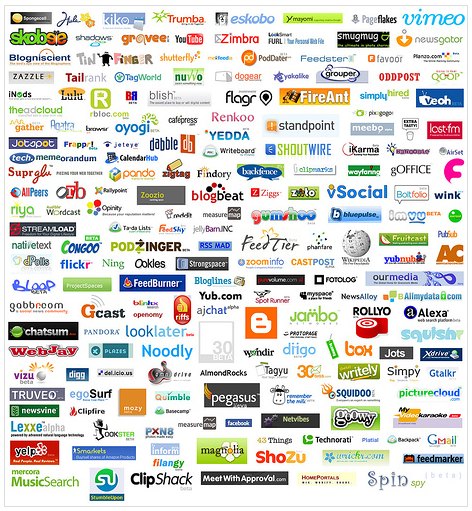IntroToBlogging
This wiki page was created for a presentation introducing weblogs, social software, etc... to students.
Contents
Open, Connected & Social
Blogs, wikis, social software, open content, and "Web 2.0"

Weblogs
Weblogs in Plain English video by CommonCraft
What is a weblog?
- a personal content management system
- a tool to foster and grow collaboration
- an easy way for individuals (and groups) to publish content without technical knowledge or experience
- conventional weblogs are hybrids of online journals and magazines - from one person's (or a small group's) perspective
- Brian Lamb's Intro to Weblogs
How does it differ from discussion boards?
- Discussion boards are usually without a unifying direction - low signal:noise ratio
- Weblogs typically have a specific direction or focus (an individual's perspective and experience), and others are welcome to participate - high signal:noise ratio
- Weblogs form rich, deeply linked networks between trusted sources (individuals and groups)
What good is a weblog?
- entertainment BoingBoing.net
- news (and newsiness) Huffington Post
- outboard brain D'Arcy Norman's weblog
- project communication Project Blogging
- social networking Wikipedia list of social networking websites
- communities of practice Anthropology community resources
- conference sharing WWDC posts on Technorati
Personal Knowledge Management

Outboard Brain

How most people handle it

Files

Books and assorted media

Why?
- archival
- flexible(ish)
- hard to search
- hard to share
How Web 2.0 handles it
Tags

Networks

Why?
- archival, but also fresh
- flexible
- easy to search
- easy to share (and collaborate, and build upon)
How?

Open, Connected & Social
A presentation, in four parts, on the topics of creating and using content openly, reusing existing resources, and connecting content and people in a decentralized, flexible model. Your tour guides for this ride are Brian Lamb from UBC, Jim Groom from University of Mary Washington, D'Arcy Norman from the University of Calgary, and Alan Levine from the New Media Consortium.
Collaborative Knowledge Management

blogs
dynamic networks formed within the "blogosphere"
- get your own blog at any number of free services
- UCalgaryBlogs.ca
- WordPress.com
- EduBlogs.org
- Blogger.com
- and many, many more!
wikis
collaboratively edited web pages (and entire sites)
- Wiki in the Classroom rubrick
- Wikipedia: School and University Projects
- use existing wikis
- get your own wiki
the whole is greater than the sum of its parts...
- del.icio.us (bookmarks)
- Flickr (photos and images)
- YouTube (videos)
Social Connections

Find your network(s)
- Technorati - use it to find your own networks for potential collaboration
- digg.com - find and rate resources
- web stats - follow referrals
- Facebook - find colleagues and friends from the real world
- Twitter - follow friends and colleagues across the internets
The Power of Positive Narcissism
Link to blogs/wikis that you like, use and trust. They will likely find the link and if they like, use and trust your blog, they may reciprocate.
Examples from UCalgary
- UCalgaryBlogs.ca (individual, class/course, project blogs and websites)
- wiki.ucalgary.ca
- UCalgary on Facebook
- UCalgary on Flickr


